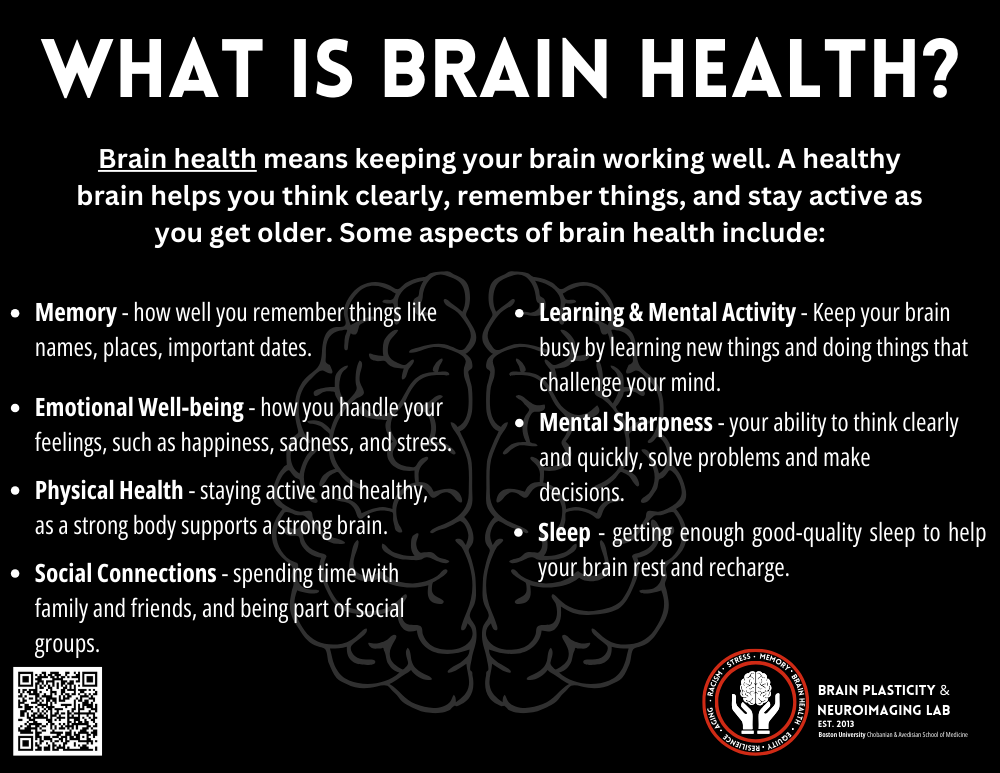Resources & Materials
Welcome!
This page is dedicated to brain health education. Here, you will find a wealth of information designed to support your understanding and promotion of brain health. Whether you’re an educator, a healthcare professional, or someone interested in maintaining optimal brain function, our curated resources will guide you on your journey.

The Importance of Brain Health Education Resources
While physical health often takes center stage, brain health is equally vital, influencing everything from our family decision-making processes to our long-term quality of life. Brain health is an essential aspect of overall well-being that affects our cognitive functions, emotional regulation, and daily life activities. However, its importance is often underestimated, particularly in communities that face unique socioeconomic and health disparities. In Black communities, where historical and systemic inequities have long impacted access to healthcare and education, prioritizing brain health and brain health education is critical.
Understanding Brain Health
Brain health refers to the maintenance of optimal brain function, encompassing cognitive abilities, emotional regulation, and overall neurological well-being. Key factors that influence brain health include:
1. Diet and Nutrition: Proper nutrition supports brain function and can prevent cognitive decline.
2. Physical Exercise: Regular physical activity enhances brain health by improving blood flow and reducing the risk of neurological disorders.
3. Mental Stimulation: Engaging in cognitive activities helps maintain and improve brain function.
4. Sleep: Adequate sleep is crucial for memory consolidation and overall brain health.
5. Stress Management: Chronic stress negatively impacts the brain, making stress management vital for cognitive health.
Understanding Healthcare Disparities and Their Relevance to Black Communities
Healthcare disparities refer to differences in access, quality, and outcomes of healthcare across different population groups. These disparities often stem from a variety of factors, including socioeconomic status, race, ethnicity, geographic location, and more. Specifically, healthcare disparities manifest in access to and quality of care and discrepancies in health outcomes, such as higher rates of disease, disability, and mortality in certain populations. Variations in the ability to obtain necessary medical services and the differences in treatment provided to different groups are often influenced by biases and systemic inequities.
Relevance to the Black Community
The Black community in the United States faces significant healthcare disparities that impact overall health and well-being. These disparities are influenced by historical, socioeconomic, and systemic factors, leading to disproportionate health challenges.
Last Updated: 06/26/2024